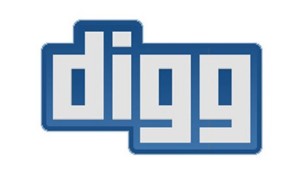Digg Company History – Trending News Aggregator
 News aggregator Digg has proven over the years that there truly is power in numbers but also that change is inevitable if a project is to survive online. It started out as a social news website, where users could choose what ultimately ended up on the front page by voting, either digging or burying content. Digg now includes an editorial based home page with news articles about science, politics, or technology.
News aggregator Digg has proven over the years that there truly is power in numbers but also that change is inevitable if a project is to survive online. It started out as a social news website, where users could choose what ultimately ended up on the front page by voting, either digging or burying content. Digg now includes an editorial based home page with news articles about science, politics, or technology.
Kevin Rose, Ron Gorodetzky, Jay Adelson and Owen Byrne started Digg in 2004, building a platform where users could post content and gauge the general feeling towards it, as other Digg members voted the submissions up or down. Digg buttons could also be added to independent web pages such as blogs in order to encourage sharing and voting. The end product was a snapshot of what was trending online and what people were talking about – although the reliability of the top posts was questioned more than once during the history of Digg as some users were accused of banding together to either promote or censor content by burying it on the website.
The years 2005 and 2006 saw further developments of the Digg concept, with a friends list added, the ability to browse separate tags, as well as the view all section. Four years after its launch, Digg became hugely popular and relevant as a source of traffic online. With over 200 million visitors a year, the site had the power to direct high amounts of traffic to websites submitted to its pages. Getting people to talk about your business or product on Digg was a sure-fire way to get noticed.
It was rumoured that Digg and Google were talking about a potential acquisition in 2008, when the platform was valued at around $200 million but the deal collapsed and the company sought venture capital funding instead.
In 2010, the whole infrastructure of Digg went through a complex overhaul. Adelson stepped down as CEO, being temporarily replaced by Kevin Rose who presided over the troubled new launch. Users grew increasingly disgruntled with the minority of users who seemed to dictate what ended up on the front page of the website, and competition from other social networking websites grew more and more fierce. Digg’s current CEO Matt Williams took over from Rose in September 2010, after the latter spent just a few eventful months in the role.
Digg was finally sold in 2012, by being split into three different sections. The brand and website, valued at $500,000, went to Betaworks. A suite of Digg’s patents were further sold to professional social networking website LinkedIn for $4 million, and some members of staff went to Washington Post to work on its SocialCode project in exchange for $12 million.
 Digg’s new owners Betaworks started work to improve the website, and conducted a user survey which resulted in them introducing the new editorial front page, as well as a better connection to the other social media websites in order to promote sharing. Digg’s future remains under a question mark, with both internet users and marketing professionals still assessing its influence in the online world today.
Digg’s new owners Betaworks started work to improve the website, and conducted a user survey which resulted in them introducing the new editorial front page, as well as a better connection to the other social media websites in order to promote sharing. Digg’s future remains under a question mark, with both internet users and marketing professionals still assessing its influence in the online world today.
